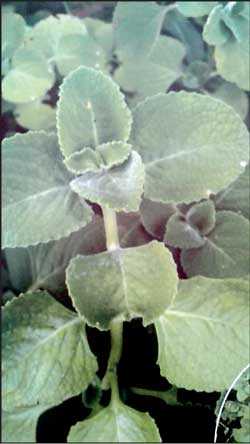Sunday Feb 22, 2026
Sunday Feb 22, 2026
Saturday, 29 August 2020 00:10 - - {{hitsCtrl.values.hits}}
 Beginning this week, we will be serialising the use of Sri Lanka’s herbs for everyday use for better health, especially the boosting of immunity. We will be using diverse books and advice from indigenous doctors for this series. For the first weeks, until we complete much of the book, we will focus on the publication Hela Weda Athputha authored by Ayurveda Shasthri, Ayurveda Doctor Palitha Shri Gagana Arachchige and published by Dilmah Conservation. We will be first focusing on kenda varieties and its uses.
Beginning this week, we will be serialising the use of Sri Lanka’s herbs for everyday use for better health, especially the boosting of immunity. We will be using diverse books and advice from indigenous doctors for this series. For the first weeks, until we complete much of the book, we will focus on the publication Hela Weda Athputha authored by Ayurveda Shasthri, Ayurveda Doctor Palitha Shri Gagana Arachchige and published by Dilmah Conservation. We will be first focusing on kenda varieties and its uses.
Kenda (traditional Sri Lankan broth) is synonymous with the traditional diet of Sri Lanka and there are kenda types that vary from those using our herbal leaves that are known as Kola Kenda and those using garlic or only rice (roasted kekulu haal) and referred to as ‘dry kendha’ (viyali kendha).
The rice that is advised in the book to be used is red Nivudu variety which has to be kept soaked for a while and then pounded in a wangediya. Separately small red onions, garlic, ginger (amu inguru) should be finely chopped and boiled with the rice. This should be boiled very well. The leaves need to be well-washed and cleaned and pounded well for the juice to be separated.
Once again the leaf extracts should be pounded along with the scraped coconut and the juice of this too added to the juice already extracted. This, along with the coconut milk should be added to the rice after it is well boiled. It is best to switch off the cooker soon after adding the leaf extract so as to retain its nutrition. Why coconut is used in the broth is to ensure that the Carotene levels of the leaves are not evaporated. The coconut absorbs and helps retain this vital nutrition within the liquid. Diya lunu (salt) should be added to the kenda.
Now for the kenda varieties; we begin with Lunu Kenda, Pori Kenda, Badi Haal Kenda, Polkiri Kenda, Kiri Kenda, and Kola Kenda. We will continue this series on Kenda next week as well, as there are many more varieties for different ailments as mentioned in the book Hela Weda Athpotha authored by Ayurveda Shasthri, Ayurveda Doctor Palitha Shri Gagana Arachchige.
Note: For the following three kenda varieties – Lunu Kenda, Pori Kenda and Bedhi haal kenda, no coconut is used.
Lunu Kenda; This is made using only rice, water and salt and can be consumed when sick (especially fever) when one has no appetite or cannot eat solids. This broth is very easy on the digestive system and absorbs well into the body helping to revive it.
Pori Kenda; This too is made without coconut and kekulu haal has to be roasted (Wee Kabale bedha) and consumed for better digestion.
Bedi Haal Kenda; The rice has to be roasted well (kabala bedha) and boiled with salt.
Polkiri Kenda; This is a coconut based kenda variety that was traditionally used as an addition to the daily nutrition as an alternate food and requires only rice (haal), salt and coconut milk).
Kiri Kenda; For this kendha the remains of the coconut after making coconut oil can be used after mixing with the rice.
Kola Kenda includes the following leaf varieties and the ailments used for is mentioned;
Wel Penala (which help in ailments such as joint and nerve issues, swelling, cough
and ear ache).
Sawendara kola (used for treating excess sweating and pitha conditions in the body, removes bad smell caused by sweating, removes poison from the body, helps heart health, eases headache, helps in skin issues).
Lunuwila (Which among other uses, help in blood purification, development of nerves, diabetes and is used to increase strength in the body).
Neeramulliya (Used for combatting Vatha and Pitha conditions and urine problems).
Kohila kola/Ala (helps in issues related to food digestion/digestive tract and as treatment for ulcers).
Polpala (helps in urine related ailments, cough, wheezing, dissolving of kidney stones, removal of snake poison as well as food digestion).
White flower bearing Ela Katarolu (used for lung related illnesses, snake poison, urine related ailments, joint swelling and increasing of memory power).
Kuppameniya kola (used for removal of poison from the body, lung/phlegm related ailments, tonsils, asthma and earache and as worm treatment.
Monarakudumbiya (used for blood purification, illnesses affecting small children, and in the indigenous branch of treatment categorised as ‘Bhuta Vaidya karamaya’ used for prolonged cough.
(SV)
(Note: Much of the Sinhala terminologies in the book which is published in the Sinhala medium have been retained in the translation as above for the purpose of this article).